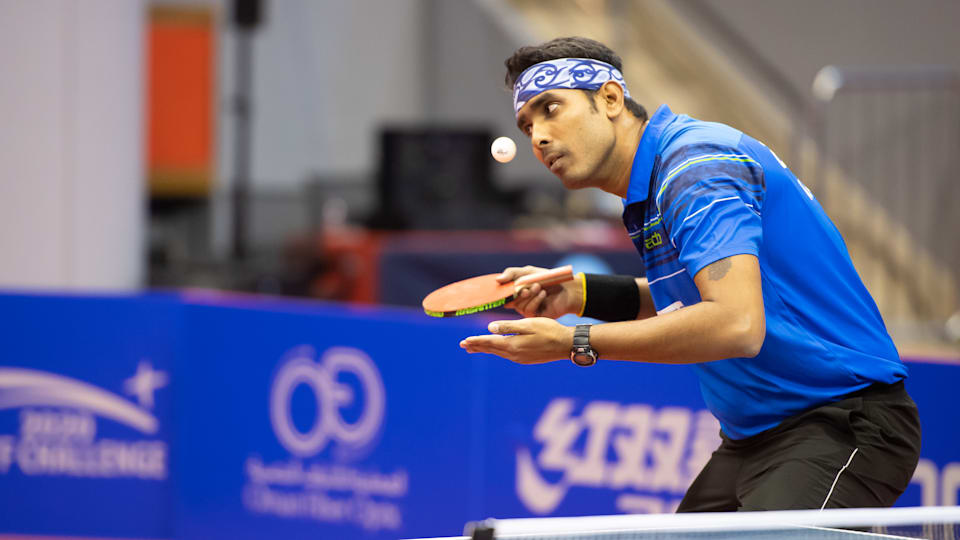Distracted by candies and sweet, how Sharath Kamal is maintaining fitness at 38
Kamal, in the twilight of his career, has a specially laid-out fitness plan for Tokyo 2020.

Having two kids at home who can hardly go a day without candies or sweets has put veteran Indian table tennis player Sharath Kamal in a tough situation as far as maintaining fitness is concerned.
Amid the 'sweet' struggle, Kamal who is in the twilight of his career, makes sure that he follows the fitness chart specially planned out for Tokyo 2020.
"Diet is very important. That is what is more difficult to keep up for me than fitness itself. Especially when you have two kids at home there are all the candies, there are always sweets at home. We have always worked on the diet," Kamal to the Olympic Channel.
"For the Olympic games, we have put in a chart as to how I should be looking or how much percentage of fat I should have. We had a plan. And I'm able to stick mostly to it," he added.
Kamal, who recently lost the Table Tennis Nationals final to his Indian compatriot and 28-year-old paddler G. Sathiyan, often feels fitness is the key while competing against fellow paddlers who are half his age.
The 38-year-old, however, believes that his experience comes as an added advantage against them.
"I have understood that my competitors (domestic and international) are younger. I'm competing with guys in the domestic circuit who are 10 years younger and the likes of Manav Thakkar are half my age. So fitness is the only thing where I can match up with them. Unless I'm not fit, I will not be able to take these guys on physically," the Chennai-based player said.
"The game has evolved and the only way I can catch up with them is my physical fitness. The advantage I have against them is my experience and my ability to adapt. It has helped me handle the pressure," he added.
And Kamal wasted no time as he made the most of the Covid-19 enforced lockdown situation away from the action to make his body 'niggle-free' as he looks to prolong his career.
"During the lockdown, I could work on my body, physically, because you know over so many years a lot of things have been put on hold. Tournaments are always there. So you never work on these details on getting yourself niggle free or fitter for a longer period of time. So that's what we have worked on lockdown period for my body - technical actions and stuff - and what has been going fine and what can be done better. So even if you can improve five percent in high-level technical changes, then your game will change drastically," Kamal explained.
"More than technical, we also worked mentally. We were set in a situation that could take us through pressure situations. It was so uncertain times during June and July the rest of the world had started and we were not able to do anything. Mentally it was not easy to keep yourself at ease and work. So I think this situation got us better mentally," he added.
The veteran has come a long way since 2015 when a hip injury saw him withdraw from the World Table Tennis Championship in Suzhou, China. He, however, battled through the pain to qualify for the Rio 2016 Olympics.
Looking back at the phase, Kamal, says it was the beginning of a second career for him.
"Post 2015, when I had my injury, it was almost like a second career for me. Fitness-wise, we are working a lot functionally. Especially taking into consideration my movement. 10 years ago, I could reach the ball with much more ease, the body or muscles behaved in a manner that makes it easier. So those things as the body ages, the muscles will be a little less reactive, but that is why I was trying to keep myself fit," Kamal said.
The three-time Olympian will have a chance to make a cut to Tokyo 2020 at the Asian Olympic qualifier from March 13 to 15 in Doha followed by the World Olympic qualifier at the same venue from March 16 to 19.
